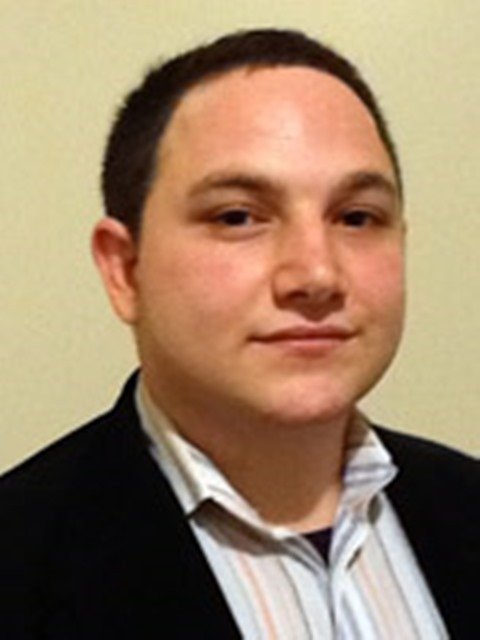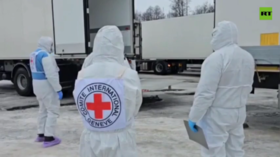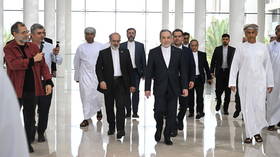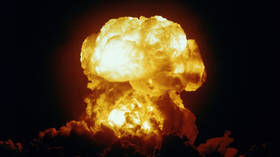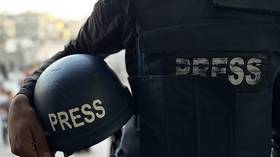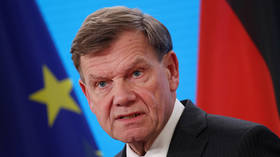‘Ferguson and untold story of depression’
The Ferguson riots are a confluence of circumstances, including the ghastly economics of the African American community that are driving rage into the open and triggering a larger movement in the US, Eric Dreister, geopolitical analyst, told RT.
RT:The protests have spread to almost all the major cities in the US. How far could this go?
Eric Dreister: It could go quite far because we have had this undercurrent of rage and anger in the US, at the government and at the institutions of the US for many, many years. There is a long and rich history of this sort of fighting back against police brutality, police repression, police and other law enforcements; we call them extra judicial associations, over the murders of young black and brown people for decades. Certainly this could go quite far. And this current has been in this country for a quite a while. But I think what we have is a confluence of circumstances here that are really driving this rage out into the open - one of those being the untold story of the depression in the US particularly among African American communities. If you look at some of the economic indicators for the African American community in the US they are absolutely ghastly: unemployment far higher, staggeringly higher than it is among other segments of the population. Of course there are many other indicators that we could point to. What this is telling us is that Ferguson is really a spark. It is a jumping off point for a much larger movement that needs to coalesce in this country, and movement not only among African Americans and among minorities, but a movement of all people against all forms of repression. In the US the police are clearly the most visible aspect of that.
RT:We see a lot of action, anger and protests. But will these protests achieve anything?
ED: It is too early to tell because if we look back at the recent history with regard to Trayvon Martin one could make the argument that nothing of substance was achieved in the long run. I think that what we are seeing around Ferguson is part of the process of building. It is the building of a movement, it is the a movement of a generation that is being shaped by the killings of Trayvon Martin and Kimani Gray, Michael Brown, and many others. This generation, this young up and coming generation, is very much organizing around some of these incidents, some of these actions, and some of these examples of repression and brutality. It is really a little bit too soon to say where this will go but certainly substantive action, that is to say is action on the ground and in these communities is what matters certainly not the vacuous and vapid platitudes of President Obama or any other figure of authority.
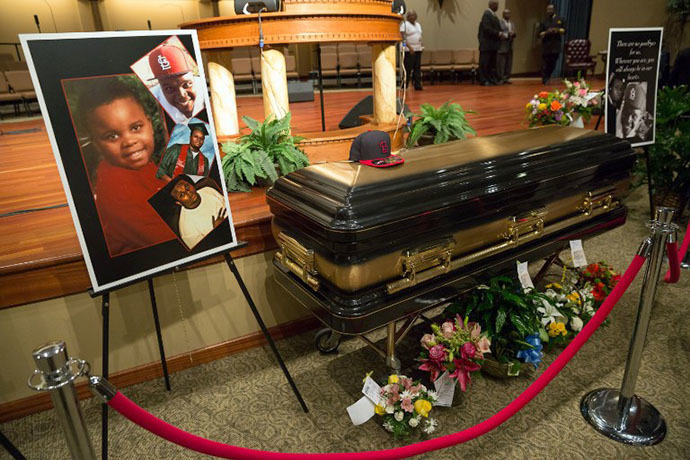
RT:Was the jury's decision regarding Darren Wilson expected?
ED: Definitely expected for the black community and for all people in the US who have gone through this a number of times. We shouldn’t mince words about it. No one expects justice for black youth in the US. This is a country where the judicial system is stacked entirely against them, the country that is housing 1.8 million prisoners being African Americans - a prisons state with the most vast and most highly built up prison architecture ever seen in the history of the world. And so in many ways then what we should say is that: “Yes, we expected it!” And we also had expected the reaction of the people on the streets. What is unexpected…is the quality with which the opposition and this movement is coalescing. This still remains to be seen but at the very least we should remain hopeful the outrage is the first and most important step.
RT:What impact could the Michael Brown case have on racial tensions in the US? We’ve seen a huge racial divide so far.
ED: No one serious believed that there would be justice for black youth, no one serious understands the history and the reality of America today, believed that. The racial divide will continue. You have seen one of the ugliest examples of racism in the US in recent days and weeks. We saw the very, very widely publicized spat between Anonymous and the Ku Klux Klan - a racist organization that is very active and somewhat powerful in the region. I think it is bringing to light not only racial divisions, but the deep-seated and institutionalized racism that exist in the US. It’s bringing all of that to the fore and it is exposing really before the world all of these aspects, all of these dirty and ugly sides of American culture that are totally glossed over by the corporate media. Remember, the media spins the image of the US around the world, not the reality.
The statements, views and opinions expressed in this column are solely those of the author and do not necessarily represent those of RT.
The statements, views and opinions expressed in this column are solely those of the author and do not necessarily represent those of RT.
